
Let us support you and answer your questions.
From Civil Engineer in India to Transport Planning Professional, read how Yogesh achieved his TPP
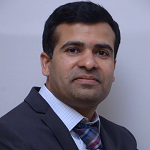
Following a bachelor degree in Civil Engineering from India, I decided upon a career in transport planning to allow me to combine my interests in transport planning and analytical and problem-solving skills.
I started my career with Jacobs as a Graduate Engineer. I worked on Transport for London’s bus priority schemes and well know London Congestion Charging scheme. Earlier in my career, I realised that professional qualifications can make a big difference to the professional progression.
During my career with AECOM, I worked on a variety of projects such as; Stansted Airport and Highways England’s Spatial Planning framework. These projects provided me with an in-depth understanding of a wide range of transport planning aspects.
After joining Atkins (April 2007), I gained a great depth of experience in my career while working on significant projects both in the UK and Overseas. My portfolio of experience includes; HS2, Heathrow expansion, Gatwick pier 6, M25 Junction 28 and A27 East of Lewes RIS schemes. My oversea project experience includes working on KRB concept design (Doha), Baku Masterplan, City of Light (Rabat) Masterplan and Port Sultan Masterplan.
As a Transport Planner with 14 years of experience, it is my responsibility to ensure that the technical content of my work is robust and stands up to the scrutiny that is expected as scheme’s go through the statutory process. I ensure that I keep up to date with the current transport issues through regular reading CIHT newsletter, Local Transport Today and TransportXtra.
I set myself a new target of completing the Transport Planning Professional (TPP) qualification. Working towards TPP helped me to focus my career development and was great at identifying areas where I needed to gain more experience. In May 2017, I reached the landmark in my career development when I gained the TPP qualification through CIHT. This qualification is the equivalent of a Chartered Engineer for transport planners and I am very proud to have achieved this status so early in my career. I am thankful to receive great help from my mentor, senior members of staff from Atkins and very valuable guidance from CIHT. I am committed to using my experience of gaining TPP to mentor and encourage others through the process.
We've put the spotlight on some of our members and asked them about CIHT membership, challenges to the industry and their thoughts on the future of transport.
Jack was named CIHT's 2019 Apprentice of the Year and writes about how he got involved with CIHT.

I got involved with the CIHT in 2019 whilst completing the first year of my apprenticeship. My mentor is a member of the CIHT and as I was working closely with the railways industry I felt being a member of the CIHT would provide routes for me to progress in the Highways and Transportation industry. Whether this was being eligible to apply for awards to boost my profile or have access to the EngTech qualification to expand my professional development. The CIHT are also always there to help and support their members which is encouraging being new to the industry with a lot to learn.
I have benefited most from the range of awards that the CIHT have to offer. I recently had the honour of being named CIHT Apprentice of the Year in 2019 and this has allowed me to boost my profile within both the industry and within Arup.
The CIHT also offer a range of events throughout the year and I have the opportunity to attend the Young Professionals Conference in November. This was a fantastic event which displayed a range of issues which we face within the industry and how we plan on addressing them. I look forward to attending more of these events and hearing people’s experiences and insights into the future of Transportation.
At this early stage in my career I aspire to make a positive change to the world and help towards providing a more sustainable future. With sustainable transport being a massive influence on how the world is going to move forward, being involved in that is very rewarding and inspires me to work hard and learn. I have been involved in a number of projects from early doors and I look forward to these being constructed and providing more sustainable methods of transport as well as making an positive influence to the surrounding communities. I look forward to being able to seeing one of my projects constructed and in use knowing that I have had an input into the design and this continues to drive me.
Georgia writes about being shortlisted for the CIHT Apprentice of the Year Award and what she enjoys most about Transport Planning.

How did you get involved with CIHT?
I joined the transportation industry in 2016 as an Apprentice Transport Planner at WSP. The CIHT was the overarching body of my apprenticeship, the first apprenticeship ever to bring young transport professionals into our industry. As I have completed a Level 3 apprenticeship in Transport Planning, I felt the CIHT was the right institution to provide me with continued, professional development throughout my career.
The institution's transportation focus really appealed to me, and many people in my team are also members of the CIHT and it came highly recommended, so it was a no brainer really. I am also part of the Young Professional Committee for the Yorkshire and Humber region - which is a great way to network with others within the same industry, by participating in a variety of events such as quizzes, seminars, and socials.
What was it like being shortlisted for the Apprentice of the Year Award and what advice would you give to nominees this year?
It was a great privilege to be shortlisted for the Apprentice of the Year Award in 2018; I was delighted to be recognised for my work in the industry, from project work to encouraging others to take up a career in our sector. Also, it was great to know that my hard work has paid off. I think the Apprentice of the Year Award is a great way to be recognised and make yourself be known, whether you win or not, it’s certainly helped me in more ways than I could have imagined! The advice I’d give to nominees is be yourself, and ensure you answer the questions in a simple and concise way.
What do you enjoy most about working in the industry?
I took an interest in Transport Planning in particular as it involves the application a variety of subjects, such as maths, physics and writing I which thoroughly enjoyed in school, to real-world problems. Transport planners, in the profession we work in, have an enduring and tangible impact on the way we experience the built and natural environment. Through Transport Planning, I am making a positive contribution to the people’s standard of living and quality of life, as well as their day to day routines through a variety of ways; such as journey time savings, improving accessibility and changing the way we think. Becoming a Transport Planner gives me the chance to build the infrastructure of the future, which will help the country to respond to the social and economic challenges we face. Every day is different.
Adrian writes about how he became the Chair of the CIHT West Midlands Committee and the future importance of data in creating intelligent communications.
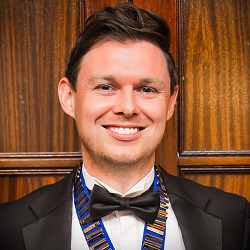
Andy writes about his CIHT membership, the challenge of climate change and technologies' potential to influence a reduction in our need to travel.

How did you get involved with CIHT?
I became involved in the CIHT shortly after graduating for all of the wrong reasons, however my motivation was probably similar to many others;
However, now that I look back, being part of this organisation has given me so much.
I subsequently joined the committee as the ‘young professional’. I found this daunting as the Committee largely consisted of people at least 10 years my senior. I have now been Regional Chair for the past two years and have valued being part of a vibrant team who have a collective interest in giving something back to members.
What is the best benefit you have had from CIHT membership?
An easy question for me to answer – The CIHT has given me a network of colleagues who work across the sector at many different levels for many different organisations. When we meet, we share a common interest in our profession. This network grows each year when I meet new and interesting people.
However, it is more than just the breadth of this network and the strength that this brings. Through the CIHT, I have grown a staggering friendship group with people who I genuinely enjoy spending time with. Having fun at the same time as promoting our industry, supporting with learning and development of our members is a recipe for success.
What do you enjoy most about working in the industry?
The breadth and diversity of the services that we deliver. No two days are the same, whether it is considering thirty-year transport horizons and strategic development, to designing and building new or strengthening aged assets to funding challenges associated with infrastructure maintenance. Every day is different. We are at a unique time where technology is progressing exponentially and needs to be embraced to tackle the many challenges we face – really exciting.
I feel privileged in my role where I can engage with a Chief Executive in the morning and can then be speaking to a crew tasked with repairing potholes in the afternoon. The diverse backgrounds of everyone I work with may be very different, however one thing I consistently see is a common desire to do a good job for those we serve – the public.
What do you think is the biggest challenge to the industry?
Another easy question – by 2080, the world that we know it will not be recognisable. That is within the lifetime of our children. It is no longer a case of whether global warming is going to impact us – realisation has hit, and the question is now one of magnitude. The difficult decisions are now starting to be recognised which is encouraging but we should not underestimate the size of the challenge.
I believe that technology will provide the solutions, but what will hold us back is the speed of social acceptance. How many times do we hear people default to face to face dialogue over video conferencing or travel in the car for convenience rather than have to share personal space on a train.
Engineers fix problems but traditionally struggle with social economic drivers. We need to think differently and where we don’t know the answers, engage with those who do.
In 10 years’, time, what will be the most important development in transportation?
The reflex response wold be CAVs and electric vehicles as these are knowns and although we have a number of implementation challenges – I am convinced that they will be seen widespread sooner than anyone imagines. However, I hope that in ten years’ time, technology will influence and reduce our need to travel significantly.
To explain; think what your mobile device looked like 10 years ago – I am guessing the only commonality with your current device is the number. We are starting to recognise the benefits of agile working and video technology – in 10 years, I hope to see mobile holographic video conferencing to be the norm significantly reducing the need to travel for business.
The technological revolution and relationships that the current generation have with their phones is what gives me hope that humans can adapt to changes and benefits that technology can bring to tackle some of our biggest challenges.
Beckie writes about starting in the industry at the age of 19, the importance of Diversity and Inclusion in the sector and why she joined CIHT as an Associate member.

Having worked in the sector for over a decade, what changes relating to D&I have you seen take place?
Having worked in the sector since the age of 19, not from the traditional graduate entry level and in an operational role that was predominantly a male environment, I have learnt a lot about diversity and inclusion. Whereas I don’t feel my age or gender have hindered my career, I have seen it be a barrier for others and have felt the need to do something about it.
For me there has been a real shift in focus on D&I in the sector over the last decade. The statistics however are still staggering. Only around 11% of our industry are female, only 8% are of black and ethnic minority (BAME) origin, and 2% are disabled people. Furthermore, over half the workforce are eligible for retirement in the next 10 years. This highlights that there is an untapped resource pool which need organisations to think differently about how they recruit, what flexibility they offer and what opportunities they provide.
As a Wellbeing Champion and Mental Health First Aider at WSP, I am often sighted on issues staff members face with D&I. The biggest change I have witnessed is that people are more open to coming forward with any issues and that organisations are starting to sit up and listen. There are also more networking opportunities for support and advice.
An example of where I have been able to make an impact since joining WSP is through working closely with our senior leadership team, HR Business Partner, Wellbeing Manager and Wellbeing Champions to redesign the flexible working guidance. This has raised awareness of the benefits flexible working can bring to the business such as agile working and recruitment/retention and benefits to individuals, with added case studies and statistics to bring this to life.
WSP is a CIHT Gold Corporate Partner and signatory to CIHT’s Diversity and Inclusion Charter. What would you say to other organisations about the benefits of supporting D&I and how does it positively affect business?
It’s important to make a conscious, informed commitment to support equality, diversity and inclusion (EDI) at work. Unconscious biases have the potential to cause barriers to creating a diverse workplace, for example, in recruitment, performance management and working in teams. Real inclusion means encouraging and supporting people with varying backgrounds and experiences to fulfil their potential. It’s about providing a professional and fair working environment where colleagues are treated with dignity and respect. We also recognise that creating an inclusive culture leads to greater innovation, productivity and financial returns. By creating a stimulating, respectful, safe, and enlightened work environment, organisations will attract and retain talented people.
Lastly, in terms of your CIHT membership, what prompted you to join CIHT and what do you value most about your membership?
I have recently joined CIHT as I believe it is a fantastic platform to network with professional like-minded individuals, who not only want to come in and do their day job, but want to make the work environment a better place for others and an attractive one for future generations. As a recognised membership organisation it provides an outward facing statement of your position within the industry and is likely to attract others to collaborate with you in the future.
Working in transport strategy, I enjoy that I am helping to improve the region for the future.
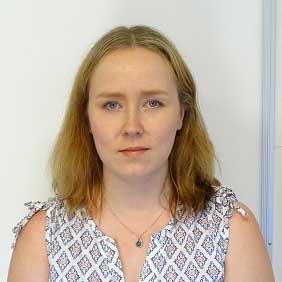
Unlike a lot of roles I have held previously in other industries, I feel that I am working to achieve something and helping to make a difference. Given that we work to a 20-year plan, I have the potential to create or influence changes that could have a long-term impact.
Becoming involved with CIHT was something that I often say I fell into rather than through me making a conscious decision to get involved. Whilst I would like to say that I actively sought to become as involved as I am now, the truth is that it was originally a misunderstanding in what I was attending that led to me becoming part of the Scotland Committee.
My route into the transport industry was not the traditional one, as I originally graduated in 2011 with a MA in English Language. After several false starts, the opportunity to work in transport opened up my career upon moving to Aberdeen in 2015. In 2017 I became a member of CIHT to help develop my career and to create networking opportunities as I was very inexperienced in the sector and had no formal qualifications that were relevant to the industry. Despite my inexperience I was lucky to be accepted as a full member of CIHT and this helped me to apply and be accepted for an MSc in Transport Planning and Engineering at Napier.
After becoming a member I asked about networking and engagement opportunities and was encouraged to contact the Regional Committee for Scotland, who asked me to attend a meeting. I did not know what to expect when attending, but I believed this to be a good networking opportunity. It definitely was as I was welcomed into the committee as a new member at the meeting. As someone who likes to get involved I saw this as an opportunity to make the most of my involvement with CIHT. A year later when I expected to become an Ordinary Member in the committee, I was instead asked to take over the role as Young Professional Chair for Scotland.
Three years later I have now completed my Masters, I am in my third year as YP Chair for Scotland and I have also taken the role of YP Vice-Chair for the UK.
For me, it has very much been the opportunity to get involved and influence how CIHT reaches people across the region and nationally. Whilst this was originally to help ensure there were events and networking opportunities that were beneficial for me in my area of the region, I have always had an instinct to help support others, which as YP Chair I try to use to best effect to help support people in their career and ensure that they have the best opportunities possible to engage with CIHT themselves. As Chair I have worked to encourage more participation from graduates and young professionals in the industry, and to give them a platform with which to make their own mark and be involved.
Working in transport strategy, I enjoy that I am helping to improve the region for the future. Unlike a lot of roles I have held previously in other industries, I feel that I am working to achieve something and helping to make a difference. Given that we work to a 20 year plan, I have the potential to create or influence changes that could have a long-term impact. As part of this, I also enjoy the variety that my role has. Whilst I could be working on a freight strategy one day, I could be buying cargo bikes or working on an advert for encouraging bus use another. There is a lot of different sides to transport so no two days are the same.
Kris Campbell was awarded the Young Professional of the Year at the 2019 Young Professional's Conference.

How did you get involved with CIHT?
My first introduction to CIHT was as a Student member while studying at Queen’s University of Belfast. However, once I started as a Graduate Trainee within Northern Irelands local Roads Authority, I put my membership on the back burner in order to focus on my employers affiliated training scheme with another Institution.
What is the best benefit you have had from CIHT membership?
I have been relatively fortunate in the short time I have been a full member to have been involved in a range of interesting and enjoyable events. It has been eye opening to be involved in the regional committee meetings and see what goes on in the background to make CIHT tick. It has also been great to hear the general insights from experienced industry professionals on a range of topics and issues facing our industry. In 2019 I was chosen to become the Young Professional of the Year and with it was able to access a front row seat into Britannia Walk and the Council activities which lie within. It is encouraging to see the direction CIHT is manoeuvring itself into with regards to sustainability and embracing new technology.
What do you enjoy most about working in the industry?
As clichéd as this might sound, I enjoy having a role in making a positive difference to the world around me. I may be a very small cog in a massive machine but when I see something, I have been involved in go out to site and improve the quality of lives of the local community it makes me smile.
What will be the biggest challenge for the highways and transportation industry in the new decade?
The obvious ones, such as climate change, automatous vehicles, electric vehicles, population growth, big data and the internet of things, energy, water and food resources to name just a few, are in the industry conscious and will not be going anywhere any time soon. It is clear there is a multitude of battle fronts we will need to tackle in the years ahead. It is not only the concern for ourselves but those of the industry professionals of the future. It is incumbent on us all to develop and encourage the next generation of professionals and look beyond our own career/ life spans. Attracting a talented workforce and nurturing them in the formative years will ensure the sustainability of our industry in the longer term.
Chris writes about starting his journey to CIHT Fellowship in the police force and the importance of future development of the roads and affordable transport.

How did you get involved with the Highways and Transportation sector?
It all began back in 2008 when I joined the Police. I quickly developed a passion for road safety and as I worked as the Airport Policing Team, I built close relationships with the Surface Transport Team at Gatwick. Long story short, I got the job as Team Leader and started developing my skills from there. We are responsible for 27km of roads and walkways landside, which is a massive area for a small team.
I brought in Traffic Management training for all the Operatives within the Team which previously didn’t exist and extended my passion into Road Safety, Traffic Management, Road Safety Engineering, Highway Inspections and even Highway Design. I’m extremely proud of what I have achieved, bringing Gatwick into the modern age and treating all ‘Private’ roads as Public. I’d like to think I’m the go-to guy at Gatwick for anything Landside related.
Why did you choose to become a CIHT member?
I joined CIHT as I believe it is a great opportunity to be able to network with other professionals within the business. Also, as a recognised membership organisation it provides that extra ‘likeability’ factor where you can attract others to collaborate with you in the future. It’s also good when you are engaging with people. This varies from people asking what FCIHT means, leading into a long and intriguing conversation, but it also gives you an invisible power. It’s almost like talking to someone who understands the title gives you a little bit of extra respect. What I also like is the fact that I can now refer to other like-minded professionals that aren’t part of the CIHT and help guide them into joining.
What do you enjoy most about working in the industry?
Everything. I love doing what I do. It’s great. I think I’m really fortunate being where I am – I work for Gatwick Airport, which up until 2017 was the world's leading low-cost airport and had the world's busiest single-use runway. When people talk and think about Airports, a lot of people don’t understand the Surface access to and from the airport. Roads, walkways, cycle paths, coaches, buses, cars, trains, bikes, car rentals… it's quite impressive all put together - 12,000 vehicles a day, 18,000 chartered coaches a year, over 900 scheduled coaches a day. I don’t have one specific role, I look after pretty much anything road and walkways wise, maintenance, TM and projects just being a few. No day is the same.
In 10 years’, time, what will be the most important development in transportation?
Naturally, I think I would say Electric vehicles and low / zero emissions all round. But then to be critical, there are other things that can go hand in hand with this. Improvements in road standards, no more potholes, and roads fit for purpose. More public transport and an affordable cost. I think that is quite key. I live 10 or so minutes from the airport and it costs me £1 or £2 a day to get to work in my car. If I took public transport, the train would be £5 a day, the bus would be similar, but both add considerable time to my journey. The bus takes 45 minutes one way!
Lucy writes about how she has benefited from CIHT's CPD and networking events and the importance of road design in supporting the introduction of autonomous vehicles.
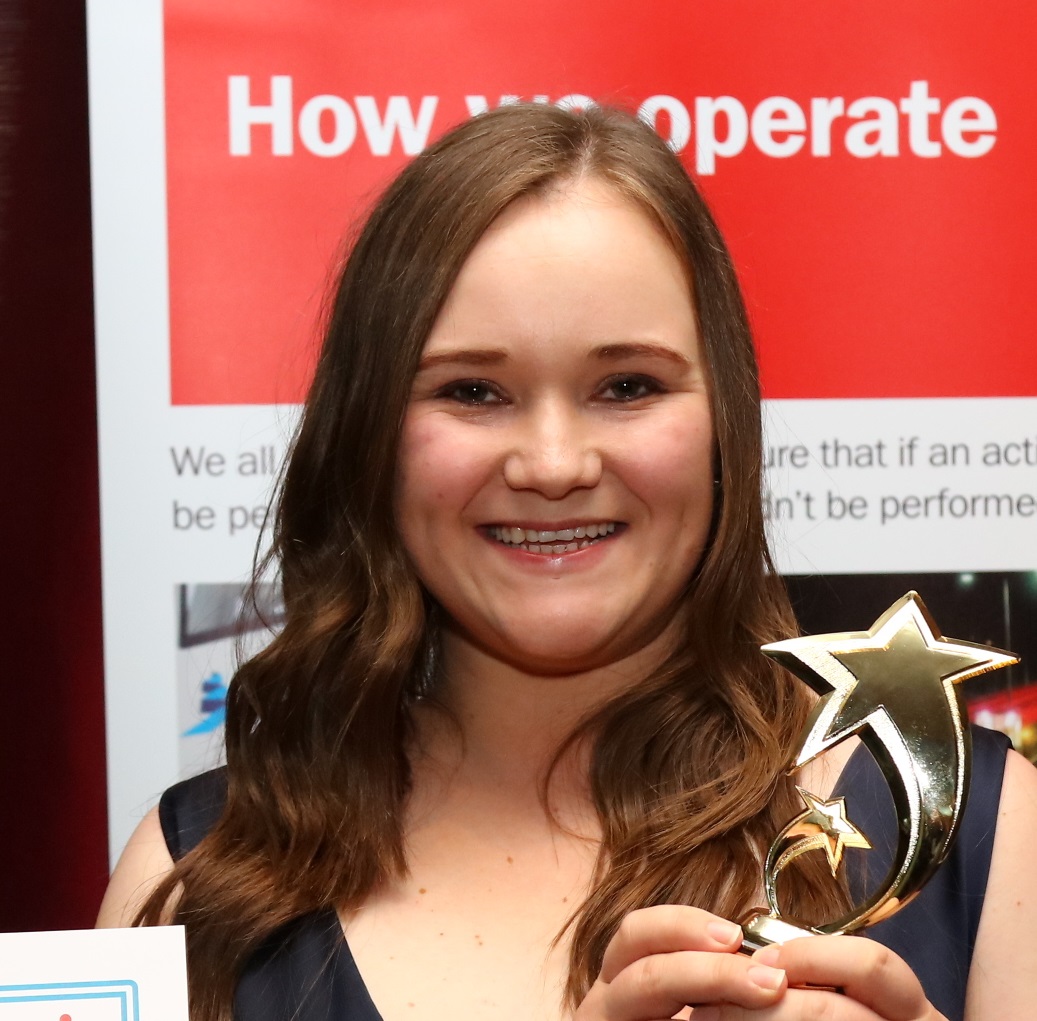
Emily writes about joining CIHT as a graduate transport planner and how she got involved with her regional committee as the Chair of the CIHT South West Young Professionals Committee.
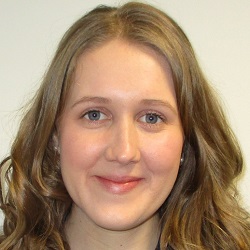
How did you get involved with CIHT?
I joined the transportation industry in 2017 as a Graduate Transport Planner. I felt that CIHT was the natural professional institution that would enable me to network with others within the industry, progress my career, and work towards chartership. Many of my colleagues are active members of the institution and fulfil roles on the South West committee. Within the first six months of my career, I got involved with the CIHT Young Professionals Network and progressed to become the group chair. I have also organised events and seminars for the CIHT Young Professionals Network as well as representing this group on the South West committee.
By being involved I have been able to learn more about other professions within the industry and build up a network within the South West.
What is the best benefit you have had from CIHT membership?
My CIHT membership has provided access to a large variety of seminars, conferences and workshops that span across the transportation industry. Attending these events allows continuous professional development by broadening my skills, as well as the opportunity to grow my network.
As the chair of the Young Professionals Group I attended the Regional Officers Conference as well as the Young Professionals Conference, broadening my knowledge and best practice from industry experts as well as gaining an opportunity to knowledge share and meet other committee members at these events. I am continuing to progress and elevate my career, and through a chartership the CIHT will enable me to do this.
What do you enjoy most about working in the industry?
As a Transport Planner, there are a diverse array of sectors. This has meant that I have had the opportunity to get involved in a variety of sectors from modelling to predict future impact on the network, working with workplaces to encourage sustainable travel, to assisting with the Tour of Britain. Each of these projects require a different skill set so I am continually learning on the job, progressing my career and broadening my interests of work within the transport sector. There are some fantastic opportunities to get involved in projects worldwide and locally – and it’s amazing to complete a project and know I have worked on something which has had a direct positive impact upon the local communities. We are currently in an exciting yet challenging time, with new technologies developing and I’m looking forward to seeing the rate these technologies develop and their impact on the industry.
With #journeys, we’re sharing stories about how CIHT helps highways and transport professionals go further and faster in their careers.
From valuable networking to first female Northern Ireland Chair, read how joining CIHT allowed Louise to give something back to the next generation

I graduated from Queens University Belfast with a BEng in Civil Engineering. My first job, working for the Roads Authority in Northern Ireland involved designing traffic management and road safety schemes. I knew quite quickly that my passion was local transport and my career has progressed into transport planning and project management. I moved to London shortly after and had the fantastic opportunity to be a part of the core team that introduced the central London Congestion Charging Scheme in 2003. I’m not sure where I got the time but I also studied part time for a MSc in Transport from Imperial College London.
Since moving back to Belfast and joining Atkins Limited in 2004, I’ve enjoyed a varied career and have been lucky to be involved in some hugely interesting projects both in Northern Ireland as well as across the UK, specialising in major business case development, public transport and bus rapid transit. I’ve recently moved into the area of business development, as part of our Transportation Win Work team, helping to manage and co-ordinate our strategic opportunities and tenders. My job takes me all over the UK and I get the opportunity to meet and work with a wide range of people.
The CIHT has been an integral part of my professional life and I have been a member for over 21 years. I first joined as a student as a way of obtaining CPD and meeting like-minded professionals and then later becoming Chartered in 2006. I joined the local CIHT committee for Northern Ireland soon after as a way of extending my professional network. I have been involved in promoting the Institution, and careers in highways and transport to young professionals, students and school children. I was delighted to win the CIHT Young Professional of the Year in 2010 and I was elected as the region’s first ever female Chair for the 2015/16 term. I hope to use this opportunity to give something back. I am passionate about the next generation of engineers and transport planners and I believe strongly in providing opportunities for mentoring and support to enable our younger members to become professionally qualified.
From designing buildings to shaping cities, read how David began running his own consultancy
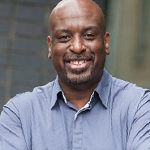
Training as an architect and urban designer was an unusual starting point for a transport consultant, but it made sense to me – streets, roads, pavements, and every other space between buildings define the buildings themselves.
As an urban designer within Transport for London, I learned how rail, bus services and highways work. Understanding a really broad spectrum of issues with transport was a great foundation for me. These are the insights that opened the door to running my own consultancy.
Right through my career I’ve never stopped learning about the relationship between “placemaking” and different modes of transport. CIHT membership – and my involvement with the Urban Design panel in particular – has been hugely important in helping me learn and develop throughout my career.
I’ve shared knowledge and ideas with CIHT peers whose backgrounds are more engineering-focused than mine, and that’s been vital in shaping my input into documents like Boris Johnson’s “Mayor’s Transport Strategy”.
Today, the insights and state of the art thinking I pick up through CIHT membership are vital to the rounded advice my consultancy offers its clients.
From college to on-the-job training, read how work experience secured Niamh's dream apprenticeship.

Whilst at college, I joined the Connect Plus Services’ (CPS) 'Get into Highways' training programme in 2014 and, on completion, was offered a two-year highway maintenance apprenticeship with CPS. I am now based at Blunts Farm depot in Essex.
The apprenticeship is a great way to train on the job and earn a wage at the same time. I believe that I am able to bring a new energy and enthusiasm to the team and in return I am surrounded by supportive colleagues who help me to develop and learn new skills.
For me, being a woman in a predominately male environment has not been a negative experience at all and I hope to see more and more women entering this exciting industry which offers a wealth of opportunities. Women are as capable in this industry as the next person and I intend to succeed.
With CPS I am able to realise my ambitions, ambitions which have been inspired by my father. This apprenticeship is a step into an industry that would otherwise have been difficult to break into and I can see a career progression within highways, one which I am keen to pursue.
Being a member of CIHT gives me access to a variety of networking and CPD events and in the future I hope to gain professional qualifications such as Engineering Technician through the Institution. The fact that membership is free whilst I am training as an apprentice is even better!
From traffic engineer to first female CIHT President, read how CIHT helped prepare Sheila for senior management roles.

My interest in transport began when I was studying geography at Bristol University where I became aware of the importance of transport and mobility to the success of cities. I started my professional life as a traffic engineer and went on to gain a Masters in Civil Engineering. As well as doing traffic management and road safety studies I became increasingly involved in traffic assessments associated with development proposals and major highway schemes. I became a chartered civil engineer in 1986 after which my career moved into management, initially as a team leader in transport planning but eventually a much wider range of services.
I also qualified as a town planner in 1994, went on to be an Assistant Director at Brighton & Hove City Council in 1996 and a Director at the Royal Borough of Windsor & Maidenhead in 2002. There I was responsible for the delivery of local authority services including transport planning, highway maintenance, traffic management, planning policy, development control and waste management.
I joined CIHT in the 1980s and became involved with the then South East branch (now Region). This enabled me to network with colleagues from other organisations and widen my experience of the industry, which helped prepare me for senior management roles. I was elected to CIHT Council in 1994 and has served on various boards and committees was the first female CIHT president in 2013/14.
I am now an independent consultant providing transport and planning advice to a range of public sector clients.
From Canadian cricket to construction career, read how collaboration can drive the industry forward.

At school I didn’t apply myself and was categorised as an underachiever, upon reflection this was due to not having a clear vision of my career options.
After leaving school I worked in a local leisure centre before heading to Canada where I played cricket for a summer and, without a career plan, I was considering a profession as a sports coach.
It was not until I returned to the UK and secured a job as a trainee land surveyor on site at Costain Skanska’s A43 Silverstone Bypass project that I realised a career in construction was for me. I absolutely fell in love with the industry from the first day of being on site.
While employed in roles ranging from engineer to estimator, I studied a HNC, a HND and finally a BSc (Hons) in Construction Management over a period of six years. In 2010 I moved in to business development – the same year I joined CIHT – and have been a business development manager at Skanska since last year.
I joined the Institution because I felt like I had something to offer the industry. CIHT can bring the sector together to help to understand and address challenges in a collaborative, open platform.
Having joined the East Midland Branch committee in 2010, I was asked to be a nominated member of Council in 2011 where I served for three years. I am currently the East of England Region’s communications officer and I sit on CIHT’s Procurement and Delivery Panel.
I would encourage members to take an active role within the institution whether at a regional level, participating in training or just networking at events, because you really do get out what you put in. The industry needs to be brave, we face many challenges so use the learned society to share ideas and knowledge and make a real difference!
From a keen interest in traffic management, to becoming an internationally qualified Transport Planner, read how Tom gained significant value as a professional

I started developing a strong interest in transport planning in 2003 when I prepared an MSc dissertation relating to London’s Congestion Charge, which was a major new scheme at the time. Whilst researching for my dissertation I read widely about traffic management, road user charging and the environmental & economic benefits of reducing road traffic. I learnt that transport planners also have a very important role to play in place making, improving public health and protecting the environment – which led me towards a career in the profession.
During the next few years I worked on a wide range of development planning and regeneration projects – including some high profile schemes in London and the South-East including Barking Riverside and the expansion of the ExCeL Centre in London Docklands. I progressively took more responsibility for managing members of the team and acted as transport planning lead and project manager. I also benefitted from international experience in the Middle East where I worked on major development and transport infrastructure projects in a Government advisory role.
Seeking to broaden my knowledge across the profession I started a distance learning MSc in Transport Planning and Engineering in 2015, finishing with a dissertation relating to electric vehicles. I was delighted to complete the MSc with a Distinction.
The TPP qualification has added significant value to me as a professional. I followed the Standard Route and enjoyed preparing the Portfolio of Evidence. I also found this process to be very informative enabling me to gain insights in to my competence level across the range of technical and management units. The advice I received from my mentor throughout this process was invaluable! The Professional Review was challenging but enjoyable, starting with a short presentation to the reviewers and ending with a wide ranging Q&A session.
I am proud to have achieved this important milestone and am now pleased to be mentoring other candidates – offering them advice and support along their journey towards becoming a Transport Planning Professional.
Sign up to the APM Newsletter.